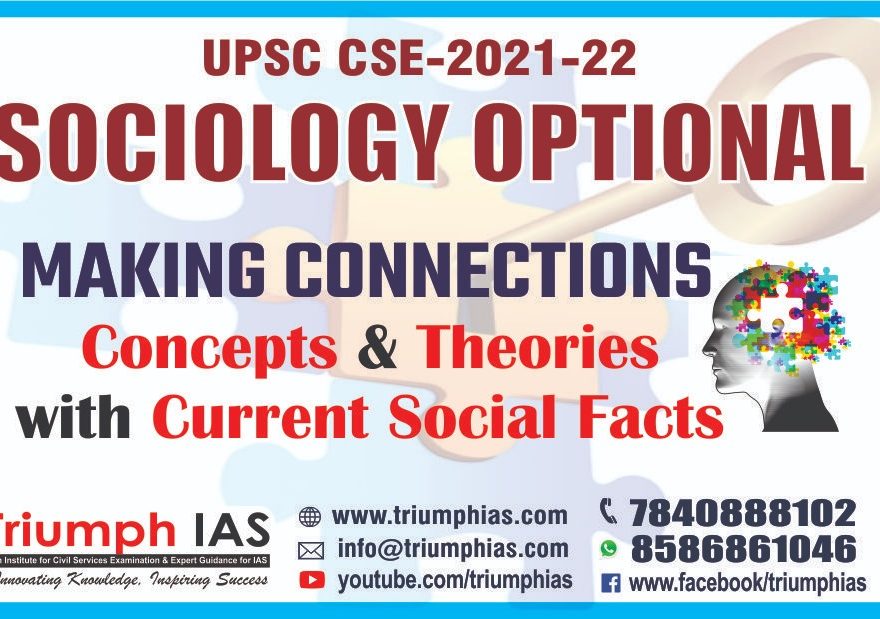Relevance: Sociology: Stratification and Mobility: Concepts- equality, inequality, hierarchy, exclusion, poverty and deprivation. Dimensions – Social stratification of class, status groups, gender, ethnicity and race.
Sociologists representing all three major theoretical perspectives study the role sexuality plays in social life today. Scholars recognize that sexuality continues to be an important and defining social location and that the manner in which sexuality is constructed has a significant effect on perceptions, interactions, and outcomes.
Structural Functionalism
When it comes to sexuality, functionalists stress the importance of regulating sexual behavior to ensure marital cohesion and family stability. Since functionalists identify the family unit as the most integral component in society, they maintain a strict focus on it at all times and argue in favor of social arrangements that promote and ensure family preservation.
Functionalists such as Talcott Parsons have long argued that the regulation of sexual activity is an important function of the family. Social norms surrounding family life have, traditionally, encouraged sexual activity within the family unit (marriage) and have discouraged activity outside of it (premarital and extramarital sex). From a functionalist point of view, the purpose of encouraging sexual activity in the confines of marriage is to intensify the bond between spouses and to ensure that procreation occurs within a stable, legally recognized relationship. This structure gives offspring the best possible chance for appropriate socialization and the provision of basic resources.
From a functionalist standpoint, homosexuality cannot be promoted on a large-scale as an acceptable substitute for heterosexuality. If this occurred, procreation would eventually cease. Thus, homosexuality, if occurring predominantly within the population, is dysfunctional to society. This criticism does not take into account the increasing legal acceptance of same-sex marriage, or the rise in gay and lesbian couples who choose to bear and raise children through a variety of available resources.
Conflict Theory
From a conflict theory perspective, sexuality is another area in which power differentials are present and where dominant groups actively work to promote their worldview as well as their economic interests. Recently, we have seen the debate over the legalization of gay marriage intensify nationwide.
For conflict theorists, there are two key dimensions to the debate over same-sex marriage—one ideological and the other economic.
Dominant groups (in this instance, heterosexuals) wish for their worldview—which embraces traditional marriage and the nuclear family—to win out over what they see as the intrusion of a secular, individually driven worldview.
On the other hand, many gay and lesbian activists argue that legal marriage is a fundamental right that cannot be denied based on sexual orientation and that, historically, there already exists a precedent for changes to marriage laws: the 1960s legalization of formerly forbidden interracial marriages is one example.
From an economic perspective, activists in favor of same-sex marriage point out that legal marriage brings with it certain entitlements, many of which are financial in nature, like Social Security benefits and medical insurance (Solmonese 2008). Denial of these benefits to gay couples is wrong, they argue. Conflict theory suggests that as long as heterosexuals and homosexuals struggle over these social and financial resources, there will be some degree of conflict.
Symbolic Interactionism
Interactionists focus on the meanings associated with sexuality and with sexual orientation. Just as masculinity is the symbolic norm, so too has heterosexuality come to signify normalcy. Prior to 1973, the American Psychological Association (APA) defined homosexuality as an abnormal or deviant disorder. Interactionist labeling theory recognizes the impact this has made.
Interactionists are also interested in how discussions of homosexuals often focus almost exclusively on the sex lives of gays and lesbians; homosexuals, especially men, may be assumed to be hypersexual and, in some cases, deviant. Interactionism might also focus on the slurs used to describe homosexuals.
Queer Theory
Queer Theory is an interdisciplinary approach to sexuality studies that identifies Western society’s rigid splitting of gender into male and female roles and questions the manner in which we have been taught to think about sexual orientation. According to Jagose (1996), Queer [Theory] focuses on mismatches between anatomical sex, gender identity, and sexual orientation, not just division into male/female or homosexual/hetereosexual. By calling their discipline “queer,” scholars reject the effects of labeling; instead, they embraced the word “queer” and reclaimed it for their own purposes. The perspective highlights the need for a more flexible and fluid conceptualization of sexuality—one that allows for change, negotiation, and freedom. The current schema used to classify individuals as either “heterosexual” or “homosexual” pits one orientation against the other. This mirrors other oppressive schemas in our culture, especially those surrounding gender and race (black versus white, male versus female).
Thus, theorists utilizing queer theory strive to question the ways society perceives and experiences sex, gender, and sexuality, opening the door to new scholarly understanding.

